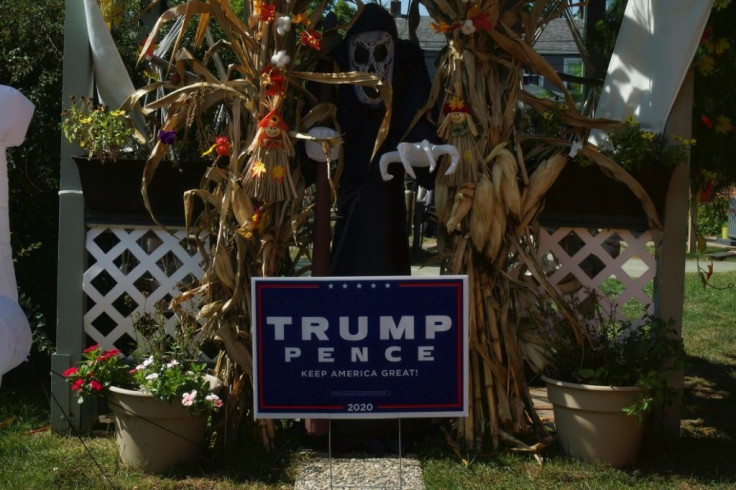Americans Reconsider Halloween And Thanksgiving Traditions As COVID-19 Cases Surge
KEY POINTS
- Amid surging cases, large Thanksgiving gatherings and traditional trick-or-treating won't be safe in many counties this year
- Americans have been finding workarounds, from candy chutes to smaller, more intimate Thanksgiving dinners
- Most large events, such as Halloween seasons at theme parks, have been shut down
People across the U.S. are having to reconsider what that holiday season looks like in a nation with spiking COVID-19 rates.
While various state and federal governments have not issued broad rules due to the large infection disparities between different locales, many are still warning Americans that “indoor Halloween parties are a really bad idea.”
The upcoming holiday season presents a plethora of opportunities for viral transmission, from large family gatherings at Thanksgiving to legions of children going door-to-door to touch doorbells while trick-or-treating. While some isolated counties might have low enough rates to approximate a normal year, most cities are considering what interpretations of holiday traditions can still be safely celebrated.

Many iconic Halloween events have been canceled due to COVID-19 risk, including Universal Studios’ Halloween Horror Nights, the Halloween Carnival of West Hollywood, Oogie Boogie Bash at Walt Disney World, Knott’s Scary Farm and the Greenwich Village Halloween Parade. The decision of whether to reopen amusement parks has grown contentious in recent weeks, as extended closures have officials weighing lives against livelihoods.
The real-world horror of a lethal pandemic has even the most famous Halloween tradition of all, door-to-door trick-or-treating, being reconsidered. While traditional trick-or-treating is in the highest risk category of the CDC’s guidelines around holiday celebrations, taking precautions can reduce it to a medium risk that many feel is worth it.
Dr. Anthony Fauci, a leading figure in the U.S.’s COVID-19 response, told CBS viewers that he wouldn’t be seeing his three children for Thanksgiving and suggested other older adults do likewise.
“You may have to bite the bullet and sacrifice that social gathering, unless you’re pretty certain that the people that you’re dealing with are not infected,” he said.
While surging cases have many families already quarantined with just a couple close members, they may have to forgo the tradition of having far-away relatively fly in for an annual feast.
“That is unfortunately a risk, when you have people coming from out of town, gathering together in an indoor setting," said Fauci. "It is unfortunate, because that's such a sacred part of American tradition — the family gathering around Thanksgiving. But that is a risk."
© Copyright IBTimes 2025. All rights reserved.





















